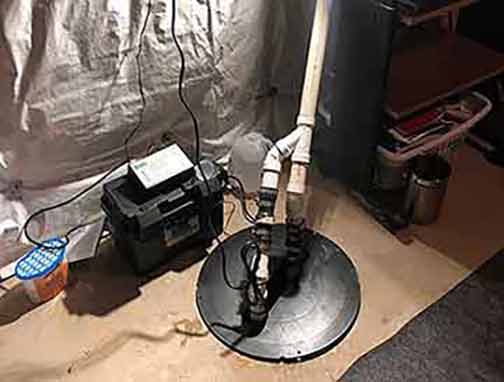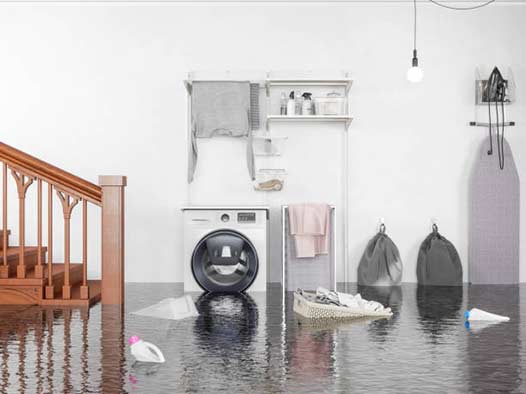A basement flood can be a homeowner’s worst nightmare. Not only can it lead to significant property damage, but it can also pose health risks and disrupt your daily life. That’s why it’s crucial to have a reliable basement flood control system in place. With so many options available in the market, choosing the right system can be a daunting task. This article aims to provide you with key factors to consider when selecting a basement flood control system, ensuring that you make an informed decision.
Importance of Basement Flood Control
Before getting into the factors to consider when choosing a basement flood control system, it’s important to understand why flood control is essential for your basement.
A flooded basement can lead to a wide range of issues, including:
- Structural damage: Excessive water can weaken the foundation of your home, leading to cracks and other structural issues.
- Mold and mildew growth: Moisture in the basement creates an ideal environment for mold and mildew to thrive, which can negatively impact your indoor air quality and pose health risks.
- Damage to personal belongings: Basements often serve as storage areas for valuable items. A flood can result in irreparable damage to these possessions.
- Expense of repairs and renovations: Repairing a flooded basement can be a costly endeavor. In some cases, extensive renovations may be required to restore your basement to its original condition.

If you live in an area prone to heavy rainfall or have experienced basement flooding in the past, you may require a more robust flood control system with additional features such as backup power or multiple pumps.
To avoid these potential problems, investing in a basement flood control system is crucial.
Factors to Consider When Choosing a Basement Flood Control System
When selecting a basement flood control system, it’s important to consider several key factors. Here are some of the most important aspects to keep in mind:
1. Type of System
There are various types of basement flood control systems available, each with its own advantages and disadvantages. The most common systems include:
- Sump Pump System: This system uses a pump to collect and remove water from your basement. It is effective for preventing water accumulation and can be paired with a backup battery installation for your sump pump for added protection during power outages.
- Flood Sensors and Alarms: These systems use sensors to detect water leaks or high water levels in your basement. When triggered, they sound an alarm to alert you of the potential flood and help you take immediate action.
- Interior Drainage System: This system involves installing a network of pipes and drains below your basement floor to collect and redirect water away from your home. It is particularly effective in areas with frequent flooding.
- Exterior Waterproofing: This approach involves applying waterproof coatings and sealants to the exterior walls and foundation of your home to prevent water infiltration. It is often combined with a drainage system for optimal flood control.
2. Level of Protection
Consider the level of protection you need based on your location, climate, and the potential risk of flooding. If you live in an area prone to heavy rainfall or have experienced basement flooding in the past, you may require a more robust flood control system with additional features such as backup power or multiple pumps.
3. Installation Process
Some basement flood control systems require professional installation, while others can be installed by homeowners. Consider your comfort level with DIY projects and your budget for professional services. Additionally, factor in the time required for installation, as some systems may take longer to set up than others.
4. Maintenance Requirements
Regular maintenance is essential to keep your basement flood control system functioning optimally. Consider the ongoing maintenance requirements of the system you are considering, including cleaning, testing, and potential repairs. Choose a system that fits your ability and willingness to perform the necessary maintenance tasks.
5. Cost
Cost is always an important consideration when making any home improvement decision. When comparing different basement flood control systems, consider not only the upfront costs but also the long-term expenses. Some systems may require more frequent maintenance or have higher energy consumption, which can add to the overall cost over time.
6. Reputation and Reviews
Research the reputation of the manufacturers and suppliers of the basement flood control systems you are considering. Read customer reviews and gather feedback from other homeowners who have installed the same systems. This will give you insights into the reliability, performance, and customer satisfaction associated with each system.
In Conclusion
Choosing the right basement flood control system is crucial for protecting your home and belongings from potential water damage. By considering the type of system, level of protection, installation process, maintenance requirements, cost, and reputation, you can make an informed decision that best suits your needs and provides you with peace of mind. Remember, prevention is always better than dealing with the aftermath of a flooded basement.
